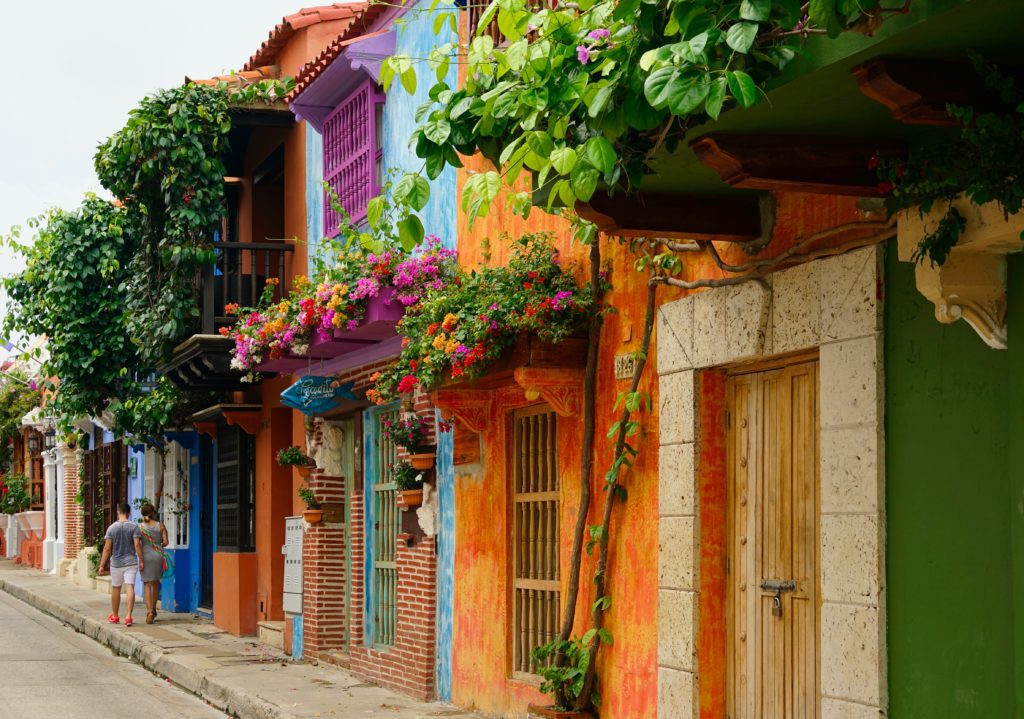
Colombia’s exotic beauty, its culture, and people attract thousands of foreigners every year, many of whom decide to make the country, their permanent residence or place to invest in. The Colombian peso’s devaluation compared to the US dollar and the very attractive housing prices make investing in real estate in Colombia extremely appealing for visitors who see great potential in the country. Not only is Colombia being praised by world travelers and digital nomads who speak well the tropical paradise on social media, but also world-known publications such as Forbes and Live and Invest Overseas have listed Colombia as one of the recommended countries to live and invest in for foreigners.
It is to this audience that we dedicate this blog: to all those Colombians who have worked abroad for many years and are now looking into investing their hard-earned money in real estate; or foreigners who have fallen in love with Colombia and want to buy property here. So, from a tax perspective, what is the correct procedure for investing in real estate with foreign currency? We answer that here.
First, it is important to know that it is possible to invest in real estate in Colombia with foreign currency without being a national or resident. However, there are a few guidelines to follow to meet the legal standards of the DIAN (Colombia’s fiscal body) and not have to incur tax liabilities and onerous sanctions in the future.
When a person is transferring their investment money through a commercial bank in Colombia, the bank will only take care of the internal procedure or monetization. It is the investor’s responsibility to inform the bank where the money is being transferred to and what the motive for the operation is, so the entity can inform Banco de la República (Colombia’s central bank) that the money being transferred will be used as a foreign investment, which means, the money is part of the person’s assets and not income generated in Colombia.
It is possible to invest in Colombia as a foreigner without having to have nationality or residency.
The procedure is as follows:
- Before beginning the money transfer, the person should request information from the bank in Colombia they will be working with, to know what will the required documents be to carry out this transaction. Depending on the entity, requirements and processing times can vary. The bank will usually require information about the origin of the funds and other documents certifying the money was acquired through legal means. On the other hand, it is good find out what the fees and other charges will be, currency exchange rates, the date that the currency will be negotiated on, and the estimated processing times.
- The money must be transferred through a commercial bank with help from international commerce or foreign currency branches within the bank. In this step, the entity must be made aware of the amount to be transferred from overseas.
- Once the commercial bank’s requirements for monetization have been met, the investor must request the transaction be declared as a foreign investment before Banco de la República. Once the request has been placed, the bank will proceed to fill out an exchange declaration form which will allow the investor to take out of Colombia, the same amount that was brought in by doing another exchange declaration in the future. Requesting the exchange declaration will also justify before Colombia’s fiscal entity, the DIAN, that the resources entering the country are part of the person’s assets and not income generated in Colombia during a certain period.
Although it is true that both a natural and legal person can monetize large amounts of money through a commercial bank without having the bank register the transaction through Banco de la República, not demanding the exchange declaration before the central bank will result in high fiscal risks since there will be no way of proving the source of that income to the DIAN.
When a monetization transaction is not registered as a foreign investment, the DIAN will assume the funds transferred are income generated nationally during that calendar or fiscal year and will proceed to levy taxes on said amount. Not following the right procedure may result in a legal dispute which is likely to conclude in having to pay onerous taxes, sanctions and interest. In addition to these tax issues, the person must consider that in the future, if they decide to sell their property which will have increased in value, they will have to incur additional taxes for taking the money out of Colombia.
Do you meet the standards?
There are three important qualifications that must be met by investors in Colombia the moment they transfer money from abroad:

- Meet the current norms regarding currency exchange which require all foreign currency to be converted to the Colombian peso’s value on the same day of the transaction.
- Comply with the current tax norms by justifying to the DIAN the origin and source of the money being transferred to Colombia.
- Adhere by Banco de la República‘s current norms concerning the entry and exit of foreign currencies.
Finally, it is important to clarify that the lack of knowledge of the current regulations in Colombia regarding foreign investment does not exonerate or excuse a natural or legal person from being charged with taxes, sanctions, and interest. The DIAN, through coercive collection, will be able to demand compliance and hold the investor liable to any charges.
If you or anyone you know is planning to invest in real estate in Colombia and needs a professional, we are here to guide you through the process. Your well-being is our priority at CH Proyectos Inmobiliarios!
De click aquí para leer la versión en español.